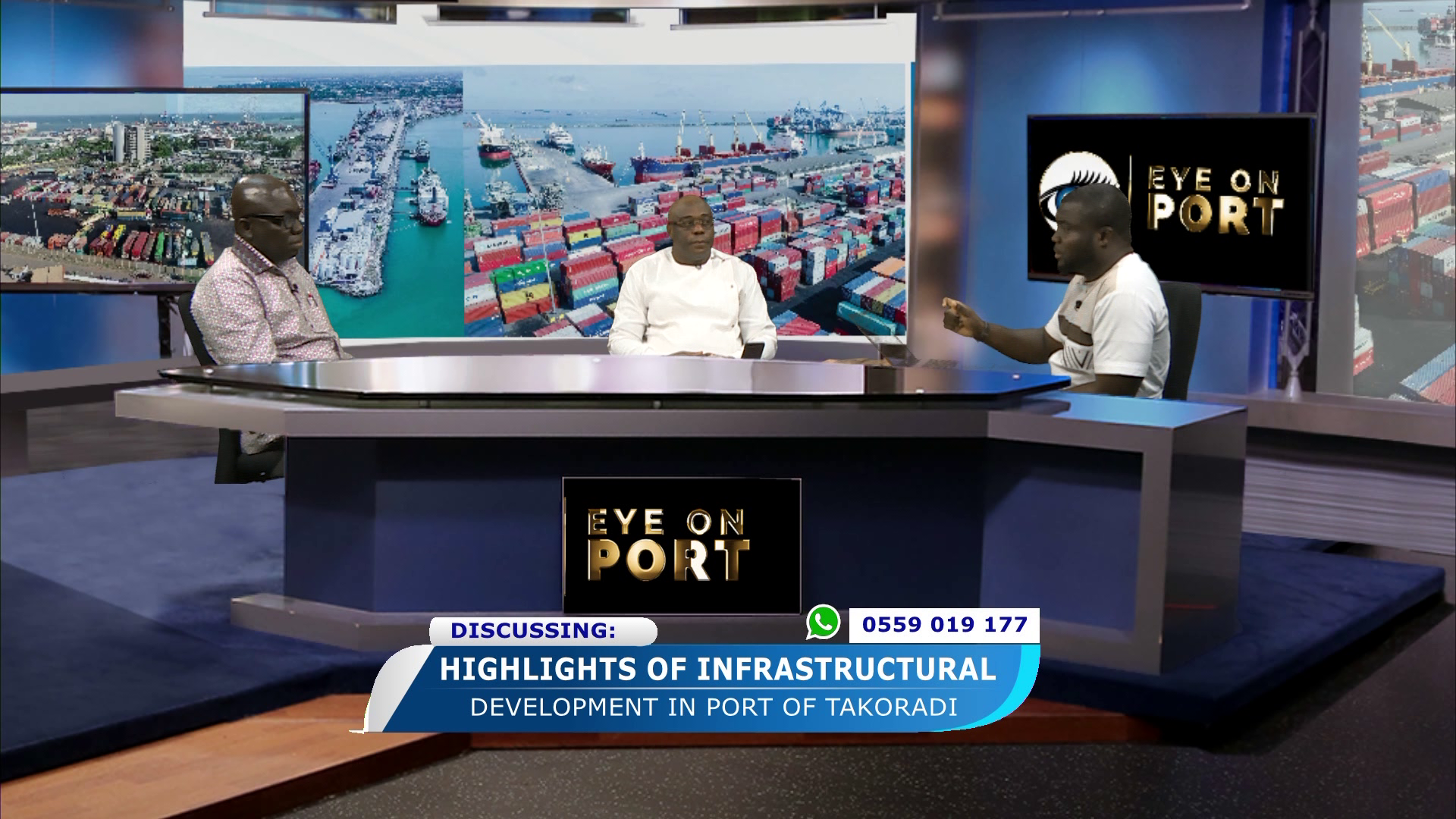Management of the Port of Takoradi is inviting economic operators, and the trading public both in Ghana and across the neighbouring transit nations to come and experience the world class and efficient services that are being offered at the Port of Takoradi as a result of the massive investments in state-of-the-art infrastructural developments that are currently ongoing at the Port of Takoradi.
Speaking on Eye on Port, the Human Resource Manager at the Port of Takoradi, Mr. Peter Amo Bediako revealed that efficiency at the Port of Takoradi has been significantly amplified by major developmental projects some of which have already been completed while others are ongoing at the Port.
He revealed that the successful partnership between Ghana Ports and Harbours Authority and companies like GOIL, and the IbisTek Group is a demonstration of the seriousness the Port Authority attaches to its vision of building a strong infrastructural base to serve as a foundation for the nation’s industrial and economic development.
Mr. Peter Amo-Bediako, also revealed that the Port of Takoradi is also encouraging greater participation of local companies in the oil and gas sector as part of its vision of being a first class port and a dominant oil and gas hub in the sub region.
“We have given Baj Freight, a local indigenous company, for example, a space of 31,000 square meters, and they have a quay side area, and that is used to solely support the ENI project. Inside the port, they have a warehouse facility that is used to support the oil and gas industry,” he cited.
He said the Port of Takoradi is committed to being the strategic support base for the oil and gas industry, hence, venturing into developmental projects that complements the Oil and Gas Industry.
“We wanted to meet the needs of traditional cargo that we had, vis-a-vis that of the oil industry, which is new. Congestion was coming into the port. Demurrage for oil vessels for example is 25,000 dollars per day, and a rig, minimum 1 million dollars per day. The oil majors also would factor it in the cost of production and subtract it from Ghana’s share.
